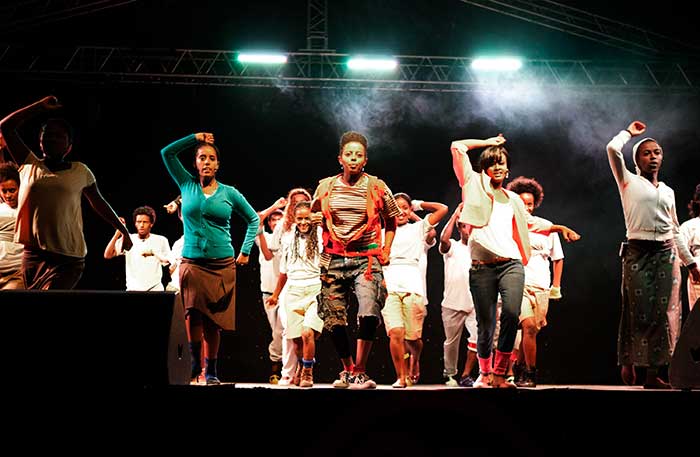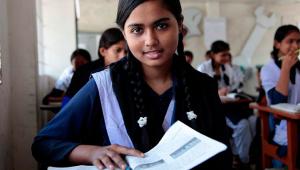web_yegna.jpg

Yegna, dubbed the 'Ethiopian Spice Girls' by UK newspapers, was one of the projects funded by Girl Effect. Credit: Girl Effect
Girl Effect, which works to empower girls and challenge negative beliefs holding them back through the use of music, radio and other media, has been supported by DFID since 2010.
It was due to receive a further £12m in aid until 2018. However, that funding has now been pulled after Girl Effect found itself in the crosshairs of hostile British newspapers.
A Girl Effect initiative in Ethiopia known as Yegna – a five-piece girl group that uses music, drama and talk shows to confront issues like early marriage and change the way girls are thought about by themselves and others – has been the focus of criticism.
Dubbed the ‘Ethiopian Spice Girls’, Yegna was described as a “blood-boiling waste” of taxpayers’ money.
Girl Effect is perhaps the first casualty of an assault on UK aid spending by the country’s press. Tabloid titles have embarked on an aggressive campaign about perceived waste and overspending in UK aid, while some broadsheets have also turned their spotlights on the UK’s £12bn aid budget.
The country’s secretary of state for international development, Priti Patel, who had criticised UK aid before taking up her post, also believes too much aid is wasted.
She is taking a harder line on ensuring aid achieves value for money, results and serves the British national interest in her leadership of DFID.
In a statement last week, a DFID spokesperson said the department’s partnership with Girl Effect would now be terminated.
“Empowering women and girls around the world remains a priority, but we judge there are more effective ways to invest UK aid and to deliver better results for the world’s poorest and value for taxpayers money.”
Girl Effect programmes in both Rwanda and Ethiopia have received ‘A’ grades from DFID in annual reviews, including Yegna, meaning the initiatives had achieved their expected outputs.
In regard to the NGO’s work in Ethiopia, DFID said Girl Effect had helped achieve significant reductions in the number of families prioritising sending boys to school over girls, and significant increases in the number of men and women disagreeing that girls deserve to be sexually harassed or raped in certain circumstances.
However in 2012, the UK’s Independent Commission for Aid Impact did raise a red flag in regards to DFID’s work with Girl Effect.
It highlighted concerns around a lack of clarity on: accountability, financial management, planning and governance procedures; what Girl Effect should focus on and how it will reach its ‘big picture’ goals; and how impact would be achieved and lessons would be learned.
In a statement, Girl Effect noted that its work is indeed more intangible: “Our unique approach fills the gap of what is often unseen, to unlock a New Normal for girls.”
It continued to say that Yegna alone reaches 8.5 million people in Ethiopia currently, where 76% of the group’s female audience say it has inspired them to continue their education and 95% of male listeners said they would speak out against forced marriage.
Farah Ramzan, chief executive of Girl Effect, said the NGO and its supporters “believe in the power of innovative, unconventional and efficient solutions to combating poverty at scale”.
“Yegna is a pioneering example of this. Now more than ever we are committed to leveraging this expertise to grow the impact of Yegna and all our programmes around the world.”













